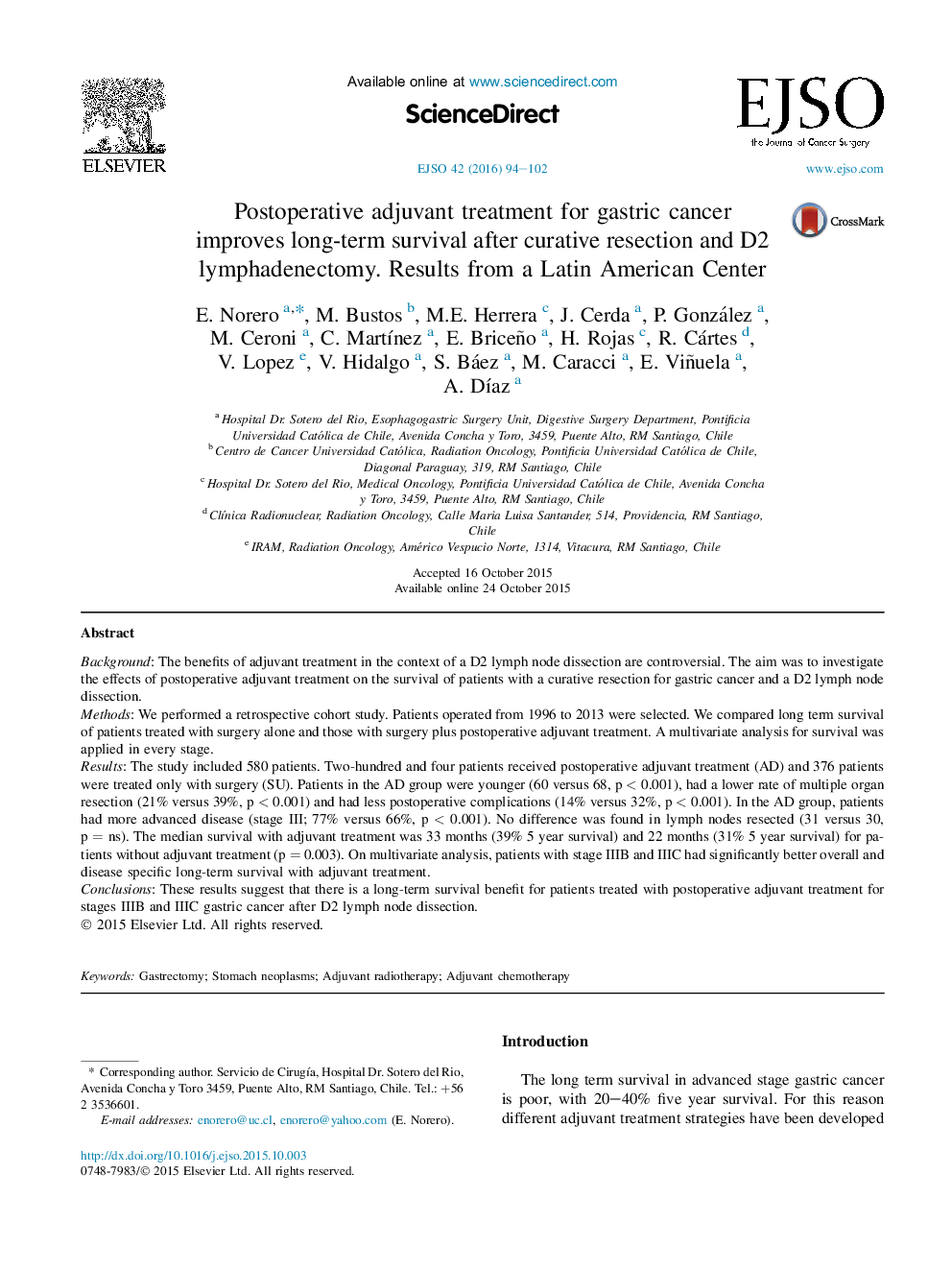| Article ID | Journal | Published Year | Pages | File Type |
|---|---|---|---|---|
| 3984782 | European Journal of Surgical Oncology (EJSO) | 2016 | 9 Pages |
BackgroundThe benefits of adjuvant treatment in the context of a D2 lymph node dissection are controversial. The aim was to investigate the effects of postoperative adjuvant treatment on the survival of patients with a curative resection for gastric cancer and a D2 lymph node dissection.MethodsWe performed a retrospective cohort study. Patients operated from 1996 to 2013 were selected. We compared long term survival of patients treated with surgery alone and those with surgery plus postoperative adjuvant treatment. A multivariate analysis for survival was applied in every stage.ResultsThe study included 580 patients. Two-hundred and four patients received postoperative adjuvant treatment (AD) and 376 patients were treated only with surgery (SU). Patients in the AD group were younger (60 versus 68, p < 0.001), had a lower rate of multiple organ resection (21% versus 39%, p < 0.001) and had less postoperative complications (14% versus 32%, p < 0.001). In the AD group, patients had more advanced disease (stage III; 77% versus 66%, p < 0.001). No difference was found in lymph nodes resected (31 versus 30, p = ns). The median survival with adjuvant treatment was 33 months (39% 5 year survival) and 22 months (31% 5 year survival) for patients without adjuvant treatment (p = 0.003). On multivariate analysis, patients with stage IIIB and IIIC had significantly better overall and disease specific long-term survival with adjuvant treatment.ConclusionsThese results suggest that there is a long-term survival benefit for patients treated with postoperative adjuvant treatment for stages IIIB and IIIC gastric cancer after D2 lymph node dissection.
